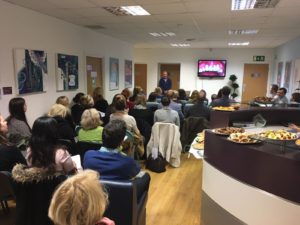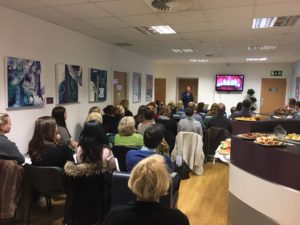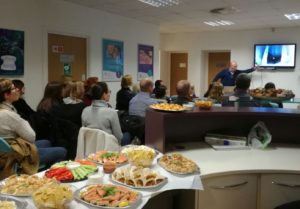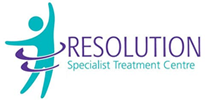A meeting of minds
We were delighted to see so many people on Wednesday night attending our CPD event on “Peri-implant Lesions- A Ticking Bomb?”. Mark Milkins, our resident implantologist, presented an informative and interactive talk about how to recognise symptoms and causes of peri-implant lesions and how to prevent them.
General dentists, hygienists implantologists, nurses and patient must all work together for the long term success of an implant treatment.
As implant treatment becomes ever more frequent so is the prevalence of peri implant diseases. Treatment modalities for these are still in their infancy, surgical repair of these types of lesions should only be undertaken by an experienced clinician. Mark demonstrated a number of cases that he successfully treated over the years. The most important message of the evening- do not turn a blind eye and seek specialist help when necessary.
What can be done?
High on the preventative list, Mark advises regular monitoring (dental examination) and appropriate periodontal therapy: ie min 2x 30 min hygienists visits per year
This helps prevent gum disease and preservation of the remaining dentition as loss of other supporting teeth can cause overloading of the implant restorations.
Regular dental and hygienist visits enable early diagnosis of peri-implant mucositis; an inflammation of the soft tissue surrounding the implant. This left untreated, can lead to peri-implantitis and potential bone loss which could result in the loss and failure of the implant itself.
Peri-implant mucositis is usually treated non-surgically whereas peri-implantitis requires surgical intervention. Prevention could avoid costly interventions and needless stress and anxiety.
As with all dental treatment, smoking was highlighted by Mark as a contributory adverse factor, this was confirmed by several of the attending implantologists.
Mark highlighted the need for good planning for implant cases. A 3D dental scan (CT scan) assists accurate planning and good implant placement. This allows clinicians to view the images from any angle and in different magnifications, to see the relationships between bones, teeth, airways, nerves and tissues to plan or evaluate treatment with much more accurate results.
If general dentists notice anything untoward during routine dental treatment, Mark recommends that they take appropriate action- refer the patient to the hygienist, check occlusion, refer to implantologist.
Similarly, if you had dental implant treatment and you become aware of any problems, seek help from your dentist or implantologist promptly. Taking antibiotics for inflammation maybe masking a more serious problem in the long term.
Parting thought of the day?- As always Prevention is better than cure.
Sharing information and knowledge at events such as these is invaluable to dental professionals for their continued development and to keep abreast of the latest industry advancements. it also serves to build working relationships with industry colleagues past, present and hopefully future.
A beverage and canape always help it along too!




